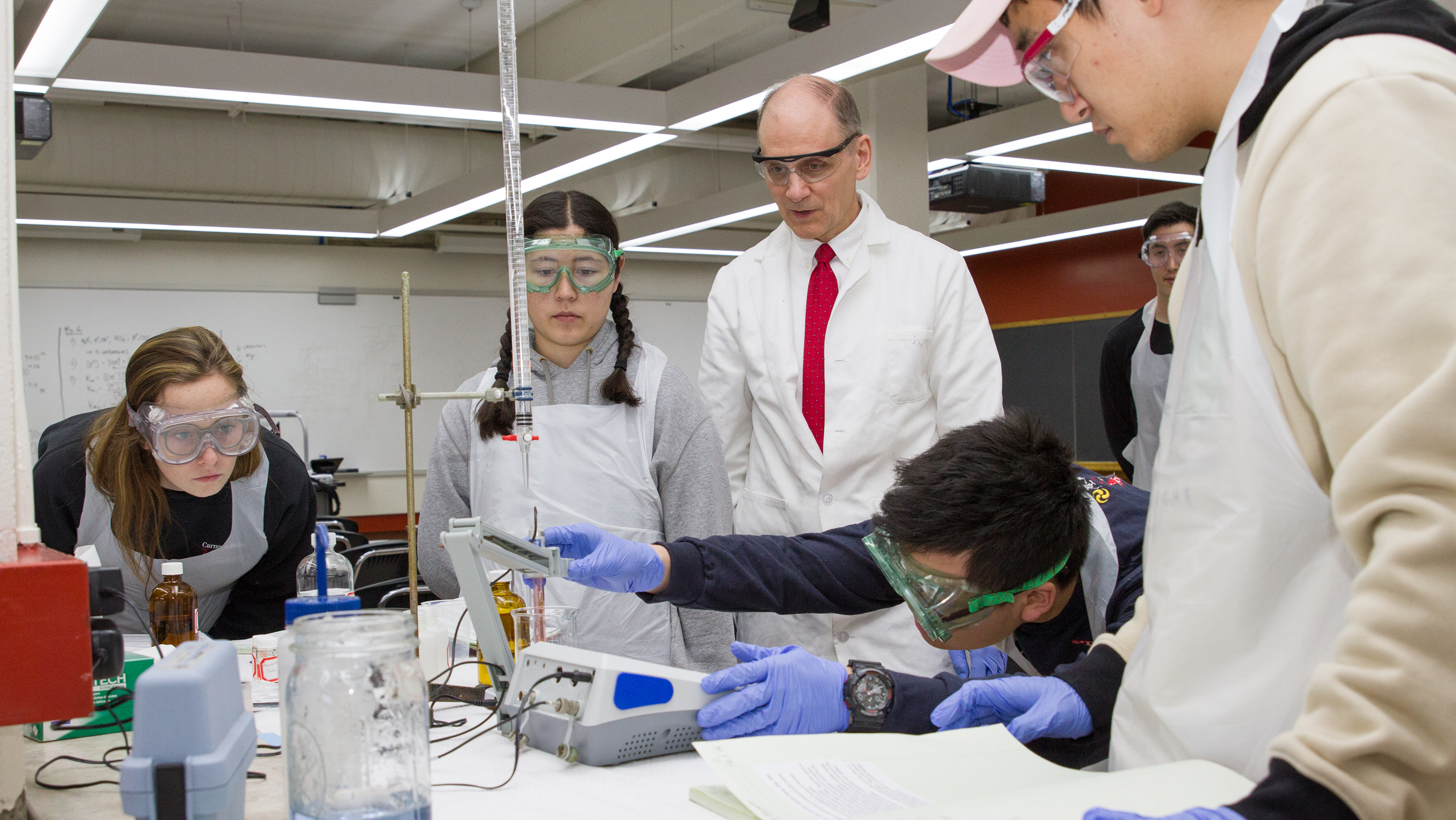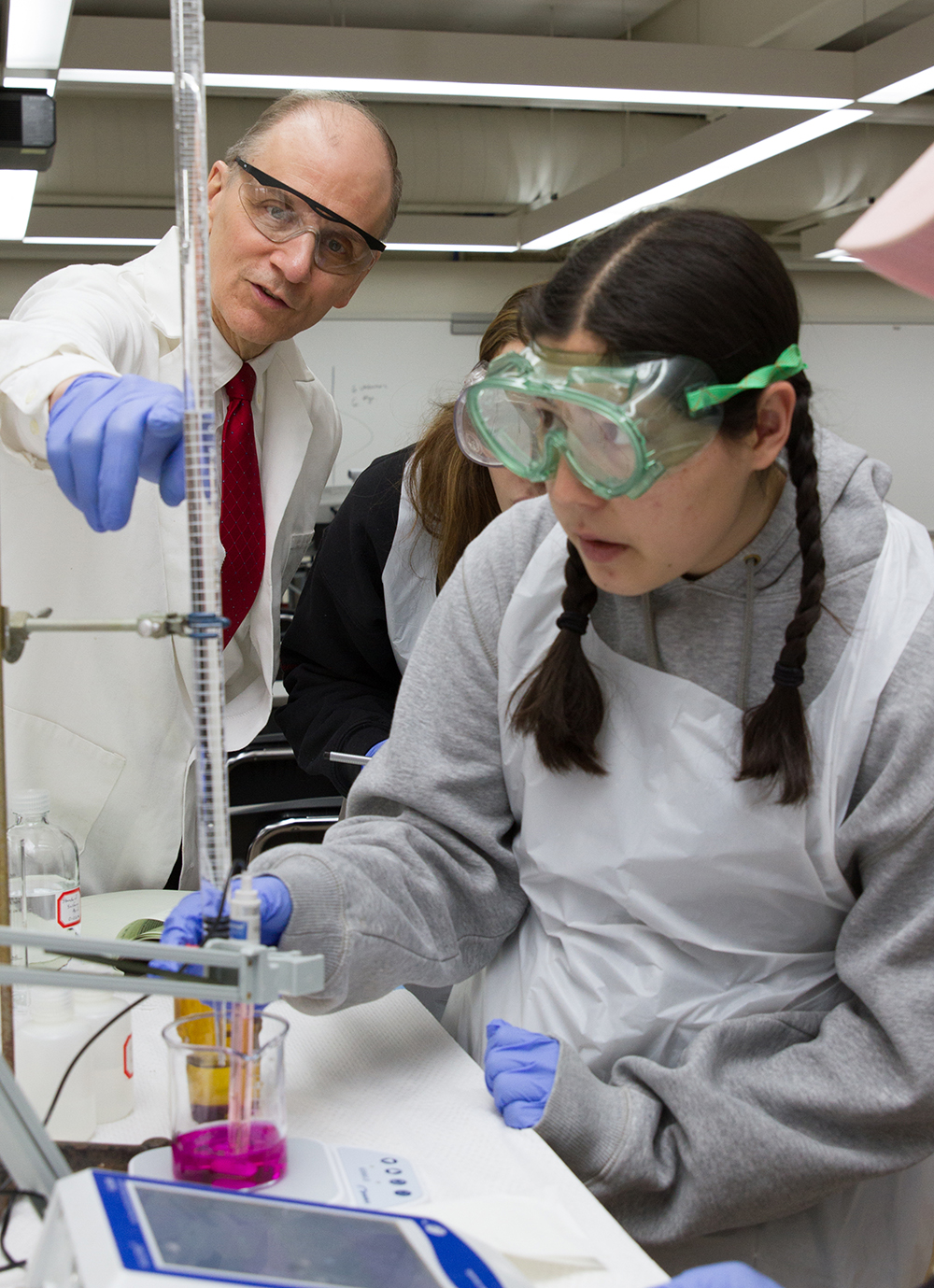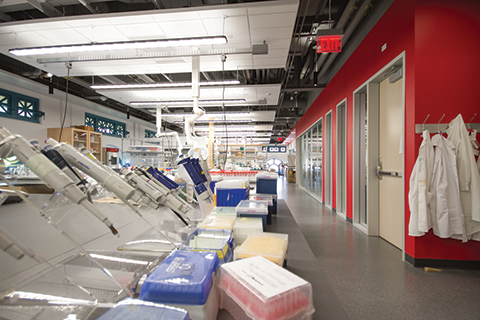
CEE Introduces Undergraduate Environmental Engineering Program
For decades, environmental engineering courses have been a cornerstone of the Bachelor of Science in Civil Engineering program at Carnegie Mellon, a program that has consistently been named among the best in the nation for studying environmental engineering. In Fall 2021, CEE will be starting a new BS in Environmental Engineering degree program that will continue to grow this legacy. “This Environmental Engineering program was inspired by engineering challenges of the 21st century such as improving the sustainability of water, energy, and food, adapting to climate change, and creating efficient, healthy, and resilient cities,” says CEE professor Kelvin Gregory, who, along with CEE faculty colleagues, worked for a year in developing the new program. “We set out to create a distinctive degree program that reflects our long history of excellence in environmental engineering along with the core strengths of our department in computational problem solving and applied data analytics for environmental and civil engineering.”
“This Environmental Engineering program was inspired by engineering challenges of the 21st century such as improving the sustainability of water, energy, and food, adapting to climate change, and creating efficient, healthy, and resilient cities,” says CEE professor Kelvin Gregory, who, along with CEE faculty colleagues, worked for a year in developing the new program. “We set out to create a distinctive degree program that reflects our long history of excellence in environmental engineering along with the core strengths of our department in computational problem solving and applied data analytics for environmental and civil engineering.”
Open to current first-year students and future incoming classes, the Environmental Engineering program will share several courses with the current Civil Engineering program, including a four-year project course sequence in which students work together on design-build-test projects. Additionally, new environmental engineering courses will be rolled out beginning in Fall 2021 that will explore in greater depth topics like environmental chemistry, biology, and ecology, in the classroom as well as in the laboratory and in the field.
"We set out to create a distinctive degree program that reflects our long history of excellence in environmental engineering along with the core strengths of our department in computational problem solving and applied data analytics for environmental and civil engineering.”
- Kelvin Gregory
“We want to prepare our Environmental Engineering graduates to meet the world’s important challenges by working at the interfaces of disciplines, which is, of course, a core strength of Carnegie Mellon University,” says Gregory. “These graduates will enter the workforce with technical excellence in environmental processes and environmental science, balanced management and leadership skills, and specialized abilities in environmental and civil engineering, data science, machine learning, and AI.”
Civil Engineering students will continue to study environmental engineering in their core courses to learn about the crucial relationship between infrastructure systems and the natural environment. Both undergraduate curriculums will encourage learning through hands-on, collaborative discovery, and program electives will offer students the flexibility to specialize in a particular area of interest, to pursue an additional major or minor, or to participate in a study abroad program.
“The CEE faculty has designed our new BS Environmental Engineering program to be a distinctive offering that leverages the culture and opportunities at Carnegie Mellon,” said CEE Department Head Dave Dzombak. "The new program expands options for students interested in infrastructure and protection of public health and the environment.”

